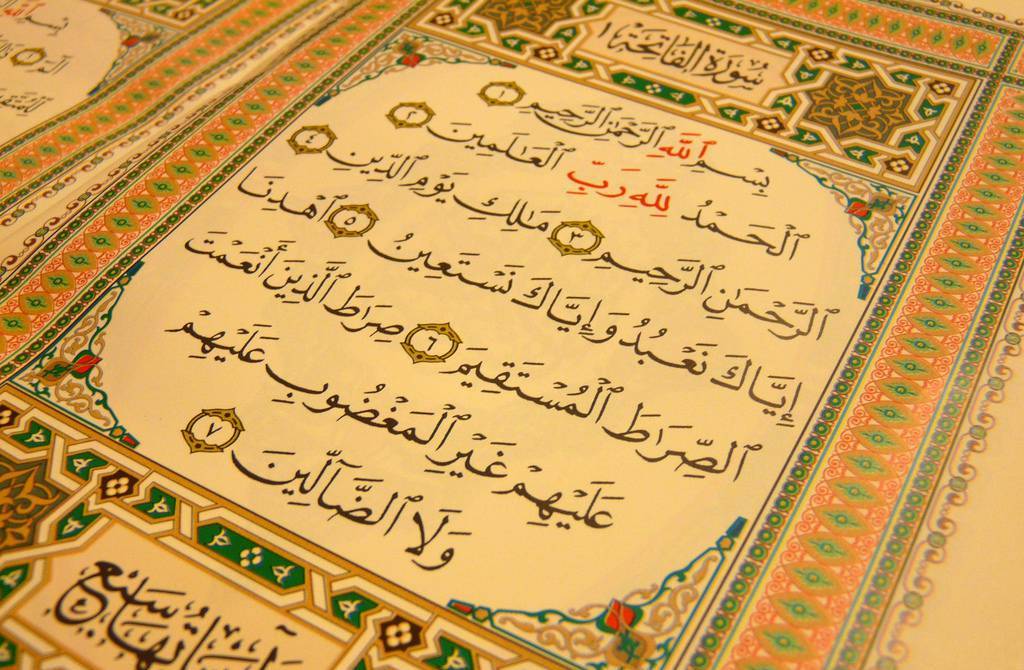بِسْمِ اللهِ الرَّحْمٰنِ الرَّحِيْمِ
اهْدِنَا الصِّرَاطَ الْمُسْتَقِيمَ
Guide us to the straight path
Ihdina assirata almustaqeem
After making the statement that we seek help from the creator when we make our own efforts, Allah lines up another ayah which essentially summarises what we need help in: guidance. He is telling us here that in order to take care of everything else in life we must seek His guidance.
We look around the world and our idea of a better life is always some sort of wealth or materialistic success. If we compare someone living in a mansion compared to another that is homeless, immediately our assumption is that the guy in the mansion is the obvious winner.
Look at Islamic history, take the time of Musa for example – he was under the ruling of the Pharoah and after an incident that took place in the village Musa had to run away with no possessions whatsoever, while the Pharoah was living large in his palace. Yet if we understood the value of Islam we would know that Musa was always better off because he had guidance and the Pharoah did not.
It’s easy for us to talk about prophets who had a very clear belief in this notion but for us to think this way is very difficult. To see a beautiful villa or a really nice car or whatever it may be and truly remind ourselves that it is not real success is the challenge that we face every day.
We need to programme ourselves to remember that the ultimate success is with Allah – His guidance that will lead to eternal bliss. The fact is always the same in this world – whatever we see around us will end, whatever materialistic gain it may be it has an ending and that ending can be tomorrow, and even through it all it is still nothing compared to what Allah has prepared in the afterlife.
There’s an interesting point to mention with the grammar here – the ayah says “guide us” when Allah could have said “guide me“. Why is this?
The message being sent across here is that we as Muslims have to be together, there has to be a community – an individual being alone simply does not work in this life.
So where are we asking Allah to guide us? “Assirata almustaqeem” is commonly translated as the “straight path” yet it goes a little deeper than that. “Asirat” is derived from the word “surat” which is a long straight sword and linguistically it means a path to which there is no alternative route. Interestingly this word does not have a plural in the Arabic language to emphasise its singularity, the absolute one path.
Another point to make here is that guidance is not the same as knowledge. Guidance is a constant request that we must all seek every single day of our lives. One may have a lot of knowledge but lack in guidance.
There are many university lecturers or very knowledgeable people who have extensive understanding about the deen and teach it to others yet they themselves are non-Muslims. Another example are those who have a deep understanding about the Qur’an, Sunnah, islamic rulings, they can know all the references and theories, yet their behaviour completely contradicts their knowledge.
Guidance does not increase with knowledge, it increases with sincerely asking Allah for it. We live in a culture where knowledge is glorified and guidance is secondary. No doubt that knowledge is important, but guidance, transforming oneself for the better, begging Allah for His counsel, these should be the priority.
“Almustaqeem” comes from “istiqama” which is to stand straight. So together the phrase essentially means “the straight upwards path”. Let’s paint the picture: it is a straight path that goes up, as one climbs one moves away from the earth and gravity will be against that person pulling them down.
Now think of Allah path as a straight upwards ladder, the higher we climb the further away from the dunya we get and our temptations will be trying to pull us down. Also, the higher we are the more dangerous the fall is; for example if there was someone who was high up with Allah’s guidance then goes astray, the fall will be more devastating that those who are lower and this is the humbling notion of this ayah.
We strive and struggle to stay on Allah’s path but we should never tell ourselves that we have done enough or that we are fully guided or that temptations can never get to us. The only time gravity stops working on us is when we leave the dunya and it’s same with temptations, until then we must humble ourselves. No amount of worship or dua or knowledge can get rid of the desires and temptations of this world – all they can do is help us control them.
Allah knows best.
